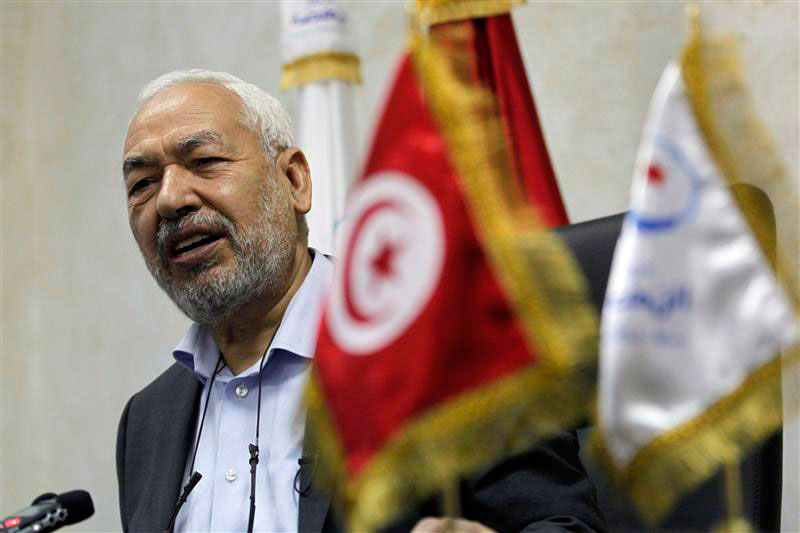Australia/Israel Review
Indonesian Democracy comes to Tunisia
Mar 19, 2014 | Dr. Giora Eliraz

Since 2011, Indonesia – home to the largest Muslim community in the world – has been conducting a dialogue on democracy with Egypt and Tunisia. This has largely been triggered by Indonesia’s ambition to advance democracy in the Muslim, and especially Arab, states and to prove in the international arena that Islam is compatible with democracy and modernity.
This democratic agenda being advanced as part of Indonesia’s foreign policy has met with some understanding in both Egypt and Tunisia, post-Arab Spring. There is a recognition there that Indonesia’s transition into democracy is a relevant, worthy case to be studied – a country with a Sunni-Muslim majority, like both Tunisia and Egypt, that has succeeded in building democracy while surmounting many difficulties.
The dialogue is led by the Indonesian Institute for Peace and Democracy (IPD) through two separate tracks, Indonesia-Egypt and Indonesia-Tunisia, though in at least one case, in Jakarta, April 2012, a workshop organised by the IPD brought together delegates from Indonesia, Egypt and Tunisia at the one time. So far a variety of subjects have been considered, such as Islam, the state and politics; political and constitutional reforms; election laws and management; the role of political parties and civil society; the place of the army in democratic society; and the participation of women in the political process.
It is striking that the Egyptian side has been almost exclusively represented by unofficial delegates, mainly political and NGO activists and experts from academia and the media, whereas Tunisian government representatives have also attended the joint meetings.
Perhaps one of the reasons for the lack of direct Egyptian government involvement is the difficulty the dominant political actors in the post-Mubarak era may have in identifying with the Indonesia model. For the Muslim Brotherhood, the winner of the first democratic elections in the new political era, the Indonesian separation of state and religion is likely to be very problematic; Islam is not recognised as the state religion in Indonesia and the Sharia, the Islamic law, has not been adopted into the constitution. Moreover, in all three Indonesian democratic parliamentary elections, secular, national-oriented parties won and in 2001, a woman, Megawati Sukarnoputri, was appointed president.
Similarly, the Indonesian model, which has also brought about a substantial decrease in the army’s involvement in politics, could be difficult to swallow for the Egyptian armed forces, and especially the Supreme Council of Armed Forces (SCAF), the pivotal actor in the political landscape of the Egypt, post-Arab Spring.
As for Tunisia, one might have expected that the Islamist Ennahdha party, which narrowly won the first democratic election there, would also have strong reservations with regard to the Indonesian model. But this has not been the case. On the contrary, Rachid al-Ghannouchi, the founder and the head of the party, actually mentioned Indonesia’s example in a favourable way. It is also interesting that whereas in Egypt it is the army that currently plays the dominant role in navigating the roadmap to democracy, in Tunisia, in sharp contrast, it was a quartet of civil society organisations, led by the powerful General Labor Union (UGTT), that brokered an agreement on a roadmap between the ruling Ennahdha and the secular political opposition for guiding Tunisia into democracy.
This deal has already brought about the formation of an interim government of independents and a new constitution, largely progressive in nature, for Tunisia. This constitution also reflects a strongly shared interest by the major political actors to move forward toward democracy with an approach based on pragmatic compromise. Thus for example, the new constitution affirms Islam, as in the past, as the state religion, but Sharia law is not mentioned – unlike even the new post-Morsi Egyptian constitution.
These and other significant indicators suggest that the prospects of Tunisia for achieving true democracy are higher than of any of the other countries affected by the Arab Spring. Given this, and despite the fact the Indonesian context is very distinctive, there are grounds for thinking about ways in which Tunisia could benefit from the Indonesian experience. Examples of lessons that could be drawn include the importance of a large, pluralistic Muslim civil society inspired and supported by strong but moderate Islamic organisations to help build solid democratic foundations; the importance of cooperation between the new democratic government and civil society in encouraging tolerance and pluralism; and the need to wage a war of ideas against extreme religious doctrines.
Last but certainly not least, Tunisia, as the nation that sparked the Arab Spring in late 2010, could insightfully learn from Indonesia about the great importance new democracies will need to place on efforts to fight terrorism carried out by zealous militant Islamists who by definition are strongly hostile to the concept of democracy. In the preliminary years of its transition to democracy, Indonesia experienced considerable terrorism which severely challenged the fabric of the emerging democratic society and the credibility of the then new and “fragile” democratic system. The Indonesian case can clearly teach the Tunisians about the direct correlation between a strong determination and effectiveness in fighting terror and the success of the transition to democracy.
Indonesia’s democracy is not yet fully-fledged and still has some significant shortcomings. Nevertheless, no one can deny the impressive success of Indonesia’s democratisation efforts over the past 15 years. Indeed, there is every reason to believe that careful analysis of the Indonesian model could greatly benefit Tunisia, and, in the future, perhaps other Arab societies, too, in their struggle to navigate toward genuine democracy.
Dr. Giora Eliraz is a Research Associate specialising in Indonesia at the Harry S. Truman Institute at the Hebrew University of Jerusalem and Affiliated Fellow at KITLV/Royal Netherlands Institute of Southeast Asian and Caribbean Studies in Leiden, Netherlands.






